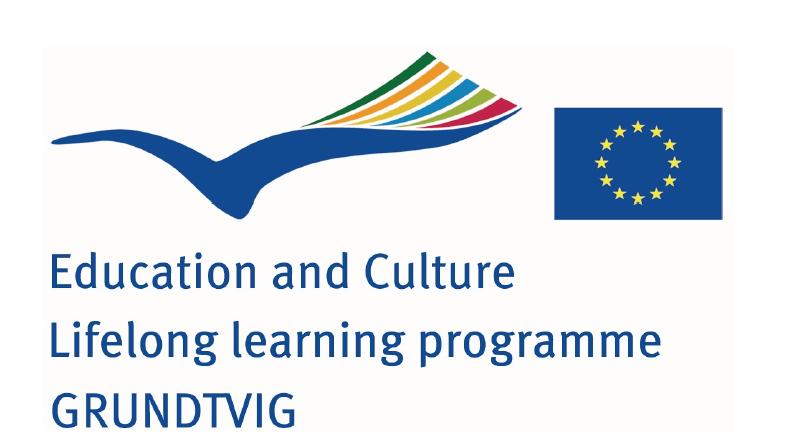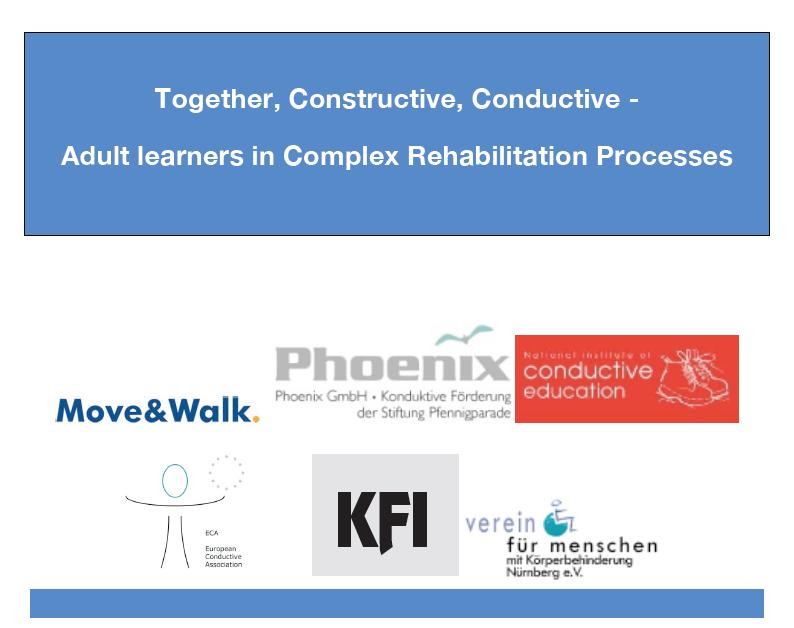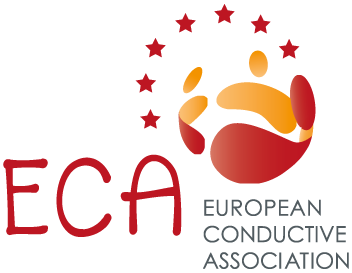

Coordinator:
- European Association of Conductive Education and Professional Practice (ECA)
Partners:
- Kuratorium für Konduktive Förderung & Berufsausübung und Internationale Fachkontakte (KFI), Austria
- Move & Walk, Sweden
- Verein für Menschen mit Körperbehinderung Nürnberg e.V., Germany
- Phönix Akademie – Stiftung Pfennigparade, Germany
- The National Institute of Conductive Education (NICE), United Kingdom
Facts:
- Learning Partnership
- 2 years
Executive Summary
2006 inaugurated UN Convention on the Rights of Persons with Disabilities initiated a paradigm shift: people with disabilities are seen as “experts in their own matters”. In order to reach the “minds, hearts & hands” of those living & working with people with disabilities this project addresses the challenge of trained and especially untrained adults in rehabilitation settings to not only effectively cooperate but also create holistic, person-centred processes that appreciate people with their whole personality rather than as a sum of additive functional parts that need care, medical treatment or educational services.
In order to actively develop this paradigm shift the people concerned need skills & competencies to attend this challenge in a structured way. This project identifies a gap between theoretical possibilities and reality. To close that gap people need to work on their personal attitudes and perspectives. This project, therefore, focuses not on aspects of vocational training in complex rehabilitation, but on the learner in terms of personal mastery and the development of interpersonal skills & competencies in formal or informal training settings.
During a 2 years partnership, 6 partners from 4 countries agreed to
- Exchange models of good & best practice
- Start at sustainable long-term cooperation
- Produce a handbook (paper & online) to ensure that the results are available for others in the field of rehabilitation and adult education
- Involve key stakeholder groups through structured attempts during the project lifetime, to ensure the integration of a high number of participant
- Integrate the results into strategic & operational activities
- The ECA as a growing European partner has taken the role as European knowledge and dissemination partner
Projects objective and strategy
The UN Convention on the Rights of Persons with Disabilities is an international human rights instrument to promote, protect, and ensure the full enjoyment of human rights by persons with disabilities. The convention came into force in 2008 and has currently more than 144 signatories. This convention is more than a legal document that ensures equality for people with disabilities, it is a powerful tool that – at least in those countries who joined the convention – initiates a paradigm shift from “care & cure” towards “enable & empower” people with disabilities and their near environment.
The context of the project
So far this paradigm shift happened in theoretical or scientific ways but has not yet fully reached the “minds, hearts & hands” of those living and working with people with disabilities every day. One major achievement of this paradigm shift is the idea that the near environment of people with disabilities needs to closely cooperate in a personal-centered way, with the people concerned as experts in their matters rather than subjects of treatment or care. This project initiative addresses the challenge of trained and especially untrained adults in rehabilitation settings to create holistic, person-centered processes. This challenge is multifactorial and highly divergent and could be addressed from different sides. This project, therefore, focuses on the learner in terms of personal mastery and the development of interpersonal skills and competencies in formal or informal training settings. The context of Adult education has been chosen, as it is the practice of teaching and educating adults irrespective their vocational background
Rehabilitation, in this case, is defined as complex processes that enable those with a physical or mental impairment based on individual strengths, resources & capabilities to be an integral part of society. Rehabilitation in this sense is based on learning and (re-) training neural pathways to regain or improve functions as well as developing individual perspectives, hope & optimism. So in terms of this particular project, trained adults (professionals) are those with a vocational background in complex rehabilitation such as special education teachers, therapists or medical staff and untrained adults (non-professionals) are those with a formal vocational training from different fields or no vocational training at all.
The rationale for the project
‘Together, Constructive & Conductive’ the title leads to a mission statement that could be defined as: “Enabling recovery, further development & enhance the quality of life through joint initiatives of persons with special needs/ disabilities and their professional & non-professional near environment.” This follows the UN Convention (2006) that claims on their full and equal participation in society through the “(…) development (…) of their personality, talents, and creativity, as well as their mental and physical abilities, to their fullest potential“ (Art. 24/1b,c). These joint initiatives need to be structured and based on interpersonal skills and competencies. The participating institutions & associations plan to work together, exchange ideas & experience how this mission could be facilitated through offering formal and informal training for already trained professionals as well as untrained stakeholder groups as family members or personal assistants.
The paradigm shift towards „enable or empower persons with disabilities“ rather than „taking care or cure them“ calls not only professionals but also and mainly non-professionals to change their interpersonal attitudes, expectations, and perspectives towards people with disabilities. In order to „(…) attain and maintain maximum independence (…) and full inclusion and participation in all aspects of life.“ (UN 2006 Art. 26/1) people with special needs/ disabilities are in need of comprehensive habilitation and rehabilitation services and programmes, based on the multi- or transdisciplinary assessment of individual needs and strengths.”
To achieve this goal it is necessary to define practical ways that allow the theoretical paradigm to shift to come to life. It is the motivation of the project partners to analyze and consider already existing training programs as well as developing guidelines for training that enables trained and untrained adult learners to individually change attitudes and behavior. The project works on possibilities to join experts working in different fields as well as people with special needs/ disabilities and their families.
General ideas
- The near environment of people with special needs/ disabilities could be seen as ‘learning community’ sharing common values & beliefs, actively engaged in learning together from each other. This so-called ‘circle of support’ empowers all individuals involved to take more control over their own lives. This also promotes the role of active self-management and sees the patient/client/learner with special needs/ disabilities as “expert in personal matters”.
- Person-centered Practice indicates a shift in professional role models. On their way “from authority to coach,” professionals learn ways of providing and organizing services rooted in listening to what people want and to help them to play an active role in planning the support they receive.
- Effective team working means a shift from interdisciplinary towards transdisciplinary ways of working together by valuing diversity, overcome role boundaries without losing a clear sense of focus and goal achievement.
- Create ‘hope-inspiring relationships’ by focusing on the core significance of hope, optimism & humor. The awareness of the complex dynamics of the interconnectedness between these and rehabilitation issues is a critical factor in determining rehabilitation outcomes.
- In times of “managed rehabilitation & care” and rapid proliferation of laws regarding social benefit, it is important for people with special needs/ disabilities, their families, assistants & supporters to understand their options. This clearly indicates that in order to be ahead of recent developments all stakeholders in rehabilitation processes are in need of training.
The project partners mainly implemented or promote the implementation of a holistic approach called Conductive Education (CE) or ‚ Konduktive Förderung’ in German in training programs for non-professionals or professionals. CE is a progressive approach to complex habilitation and rehabilitation of people with special needs/ disabilities. Here, disability is understood as a learning difficulty and as a disadvantage to play an active role in society. According to the International Classification of Functioning, Disability, and Health (ICF – WHO 2004) the terms “disability” or “special needs” mean functioning in respect of activities and participation. Conductive Education (CE) was developed in Hungary by Dr. Andras Petö (see: www.peto.hu) in the 1950s and has spread all over the world since. CE is a complex rehabilitation approach for target groups with special needs/ disabilities of all ages. CE enhances and encourages learning and further development in all aspects of life, movement, mental or social ability simultaneously. People with special needs/ disabilities are seen as active learners in complex settings. CE teaches to achieve goals and the motivation to find individual ways – as individuals & families, personal assistants, etc. – to achieve the highest possible participation in society.
Motivation for exchange
- Be part of a more joint Europe
- As Europe is changing and with that the demands on Adult education concerning, for example, cultural and linguistic diversity
- Ensure that future developments are coordinated throughout Europe and therefore prevent national work being carried out in isolation and so be able to
- offer wider opportunities to potential learners from all European countries.
- Knowledge transfer from more experienced to less experienced partners and vice versa
- Spreading & discussing the idea of holistic habilitation & rehabilitation in Europe by involving various stakeholder groups
- Exchanging models of good practice and best practice
- Analyze and discuss unconventional ideas (‘think outside the box’)
- Share experiences in developing and offering course programs for complex rehabilitation/CE professionals and non-professionals
- Support the development of innovative ICT-based content, services, pedagogies,
and practice for lifelong learning - Find possible partners for future European cooperation
European added value
The European consortium:
The consortium is with four partners from Central Europe that clearly focused on central European activities. With HU one partner from the “new member states” plays a key role as this partner has 60yrs of experience in offering complex rehabilitation services and training for professional and non-professional adults. The members from SE and the UK also play a very important role as rehabilitation & adult education standards in rehabilitation have achieved a high level of development.
Impact/benefits for the partners:
Exchanging experiences and receiving new inputs by consequently involving key stakeholder groups during this partnership will have a fundamental impact on the participating organizations. Being part of a growing political and life spanning the European community is a fascinating aim and task at the same time. The ECA as an umbrella association has currently members from all over Europe and will ensure that key European organizations in the field of rehabilitation and adult education will be informed about all relevant results. As complex services are a growing sector in the field of rehabilitation the ECA plays a key role in spreading knowledge and will act as a networking and dissemination partner.
Impact/benefits for the European lifelong learning community:
As all European member states started a
Impact/benefits for key project stakeholders:
- Seen from a unique staff perspective it would provide a wider scope of knowledge for staff concerning professional development.
- Seen from the perspective of families and other supporters of people with special needs/ disabilities, they could highly benefit from European examples of good and best practice.
- The perspective of persons with special needs/ disabilities will fundamentally change through sustainable long-term cooperation as their focus is – without blaming them or institutions for that – still highly focused on local and regional environments.
Impact
This partnership is an attempt of institutions from various backgrounds to approach each other in a structured way to share experiences & learn from each other. Besides the chance to meet people working in similar educational settings and by that being part of a growing European community, the participating organizations will create a sustainable European platform for training in complex rehabilitation. This platform could be seen from different timeframes as the starting point for further joint European initiatives:
Short-term perspective (within two years):
- Initiate a European platform for Training in Complex Rehabilitation
- Share & discuss individual national experiences
- Prepare process for European standards (training, design & accreditation) in Complex Rehabilitation
- Create awareness for the significance of Personal Mastery Learning processes for trained and untrained adults in the complex rehabilitation processes
- Enhance the relevance of ICT technologies and ICT based learning methods (for example E-learning)
Medium-term perspective (within five years):
- Prepare the ground for different European projects
- Provide the ground for European training programs on a different level
- Create awareness for the of transnational mobility and exchange (trainees, trainer, people with disabilities & their environment)
- Establish a knowledge cente
Long-term perspective (within ten years)
The project could have significant impacts on the rehabilitation sector as the need and the demand for complex services is increasing. The impact on the field of adult education is bounded by the fact that the focus of the project is mainly on persons with special needs/ disabilities and their professional and non-professional near environment.
But as the number and the quality of courses in the countries of the partner organizations and later on in the European community will increase in turn there will also be a great benefit for persons with disabilities and their families all over Europe through the implementation and accreditation of holistically designed training opportunities for professionals and non-professionals:
- A more positive and creative understanding of the potential of children with motor-, perception- and multiple disabilities
- A fundamental shift on the parent/near environment – professional relationship
- The highest level of individual participation in society
- The quality of life of people with disability and their families will increase
